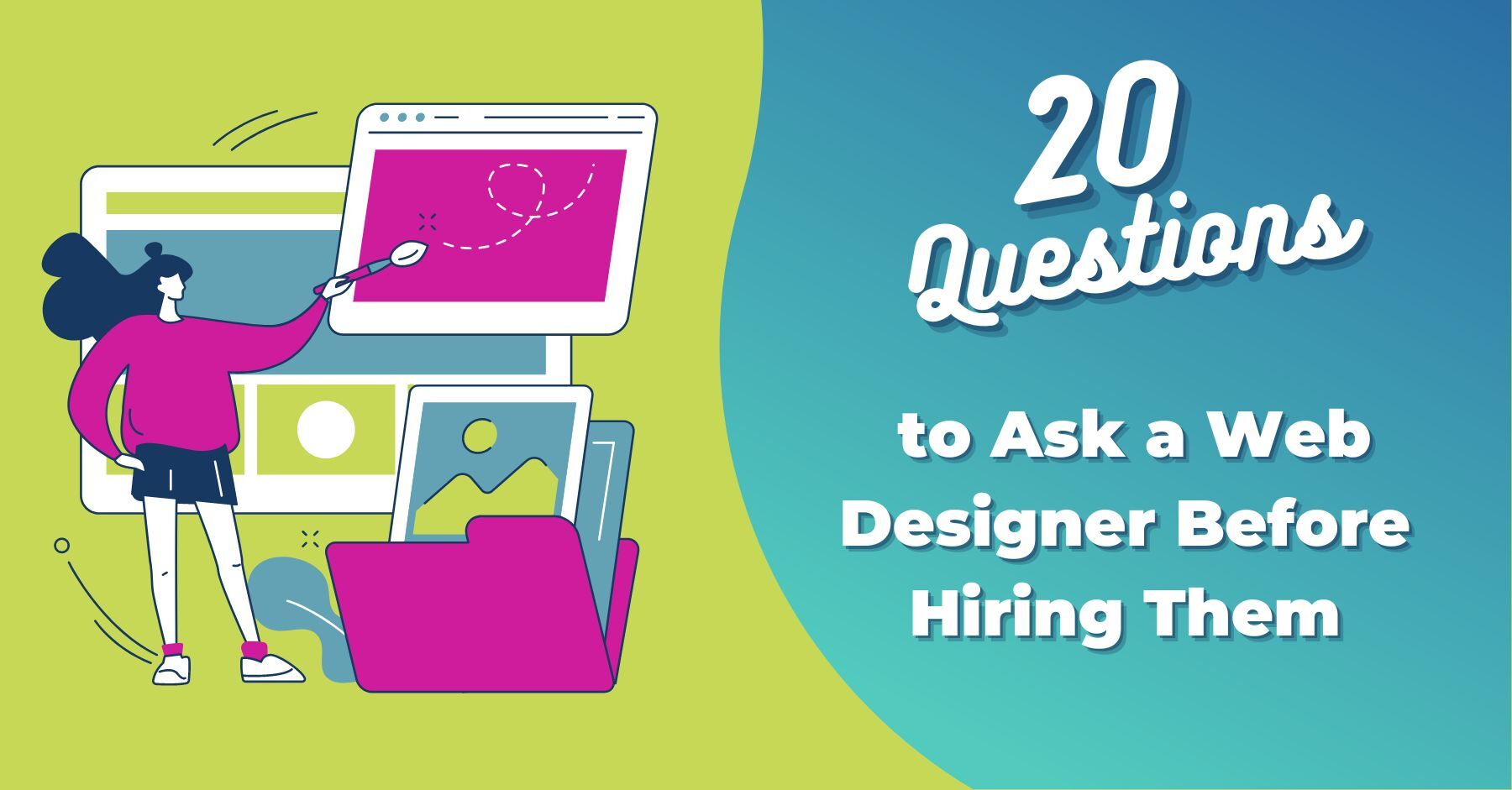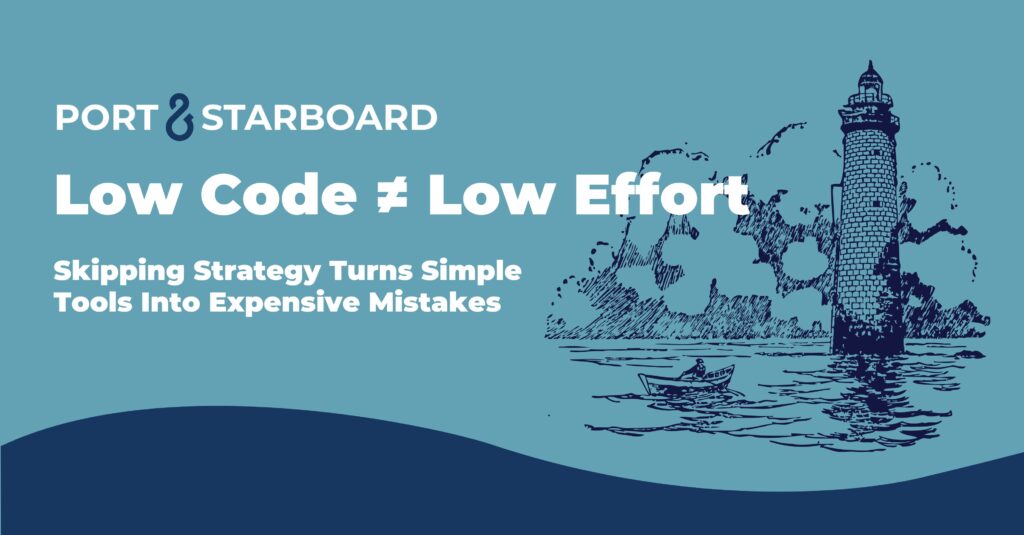Many customers get their first look at the products and services your business offers on your website – and first impressions matter! Once you’ve hooked their attention, your website should be a virtual elevator pitch, quickly conveying how you can help them. When they’re on board, your site must be easy to navigate and allow them to purchase your product, engage your services, or find out more information.
But most companies are experts at their own business – not website design. So how do you find the perfect design and development partner? Here are the top 20 questions to ask a website designer before hiring them.
20 Questions to Ask a Website Designer
1. Do your services fit within our budget?
Although cost isn’t everything, it’s a good idea to start by getting a ballpark idea of what the kind of website you envision will cost. Just keep in mind that you typically get what you pay for when it comes to web design. While you should avoid paying top-shelf prices for features you don’t need, you won’t get a well-designed, smoothly operating website on a bargain-basement budget.
Many website designers offer a wide range of services, but some only do higher-end, custom builds. It may not be a good fit if you’ve budgeted a wildly different amount than the designer quotes.
2. What does the quote include?
Any discussion about the budget should include a detailed description of the quote. The quoted price can cover everything from a bare-bones site design and implementation to fully managed, long-term options with ongoing service plans. Find out precisely what’s included and what’s an add-on. Some things to ask about include:
- Logo design
- Custom fonts
- Content creation
- Custom images and graphics
- Photography
- Domain registration
- Hosting fees
3. Do you use pre-built themes or build fully custom websites?
Many web designers offer several standard design template choices. These are more budget-friendly and generic than fully custom sites. A pre-built “theme” can be a great option if your priorities are speed, cost-effectiveness, and simplicity. If you’re looking for something more artistic, memorable, or complex, make sure your designer has the resources and expertise to cater to your needs.
4. How long will the project take?
Building a standard website often takes between four weeks to three months. The timeline will vary based on your company’s distinct needs and the complexity of the build. It could also depend on your designer’s availability. Highly sought-after website designers may have a longer waiting list or be juggling multiple projects simultaneously. But that’s not necessarily a bad thing. It could be a telltale sign of their expertise and excellent customer service.
After discussing the scope of your project, ask your potential website design partner when they can begin and how long they expect it to take.
5. What content management system do you use?
Most of the time, it’s best to use a widely available content management system (CMS), like WordPress, to build your website. WordPress is an open-source platform, which means it’s open to the public to update and improve. It also powers 43% of all websites that use a CMS – making it the largest CMS in the world by far (second place goes to Shopify at 4.3%). With WordPress, you get more control, support, and customization than many other content management systems.
6. How involved will we be throughout the process?
Some businesses want to be highly involved in the website design and build process, while others want to leave everything in the hands of their design team. To ascertain that your expectations are the same, ask the designer what you will need to supply and how involved they expect you to be in the process.
Will you provide your own content, or will they write it (or some combination of both)? Will you get to see periodic updates, or will they build it independently and hand over an essentially turnkey product?
7. What’s your site build process?
One of the most important questions to ask a website designer is what their site build process looks like. Ask them to explain it from start to finish.
- How do they gather the details of what you want for your site (your goals and challenges)?
- How will you communicate with them?
- Do they work with other designers and technicians to build your site?
- What are the different phases of the process (e.g., sitemap, content, testing, launch, etc.)?
There’s no one right way to build a great website, but an experienced designer will be able to explain their standard process to give you a good idea of what to expect.
8. How will the project be managed?
Website design often involves a team of specialized professionals. Find out who will be your central point of contact. It could be a project manager or a designer that is directly involved. Ensure your expectations match, including how you’ll communicate (email, text, video chat) and expected response times (immediate, same day, 24-48 hours).
9. Do you do all the work in-house or outsource some of it?
While some design companies handle everything in-house, many outsource at least some parts of the design and development process. Some outsource only specialized content (custom fonts, logos, graphics, photography, etc.), while others are essentially go-betweens that engage contractors for all aspects of the build. Each one of these management approaches can have advantages.
10. What additional skills does your team have that could help our business?
Some website design companies offer content creation services, logo design, photography, social media management, website management, translation services, and more. Ask your prospective design partner what other services they offer besides website design if you require related help. Do they provide any complimentary services as part of their design packages?
11. How do you plan to optimize my website for search engines?
In addition to building an attractive, functional site, website designers should employ strategies that optimize the site for search engines. A knowledgeable designer should demonstrate an understanding of search engine optimization (SEO) and be able to explain some of the ways they plan to apply them on your new site.
12. How do you ensure good user experience design?
User experience (UX) design involves all aspects of creating a positive online experience for visitors. This includes branding, function, and usability. Your site must also look good on various devices, including desktop computers, mobile phones, and tablets. Ask your designer how they plan to ensure that the design and functionality of your site work for all users.
13. What is the process for testing our site before and after it goes live?
Your web design partner should test the new site before revealing it to the public. Quality assurance testing should be performed on various devices and in several different browsers to ensure all links work and everything looks and operates perfectly – before and after launch.
14. Can you integrate my current CRM with my new website?
If you use customer relationship management software (like Salesforce) to collect and process customer data, ensure your new design team can integrate it into the website build. Although this is a relatively common request, not all web design teams have the technical skill to do so correctly.
15. Will there be any website downtime during development?
Typically, when a new site is fully launched, the old site will be deactivated (and traffic redirected to the new site, if applicable). However, sometimes it’s necessary to remodel an existing site or deactivate some functions while implementing a new website. Find out if there will be any website downtime during development. If anticipated, you can ask the team to plan the downtime for when your website traffic is lowest.
16. Will my team be able to make updates after the site launches?
If you want your in-house team to be able to make changes and updates to your website, convey that to your potential web designer. If you don’t want to handle those things yourself, many designers and design firms offer support packages that include ongoing changes, updates, and support.
17. How does website hosting work?
A web hosting service offers the facilities required to create and maintain a website and make it accessible on the internet. A reliable website host is essential for minimizing errors, slow or lagging performance, and other technical issues.
Many web hosting services operate hundreds or thousands of sites and outsource customer service. If your website has a problem, it can be difficult and time-consuming to get it fixed. Find out how your prospective web designer plans to host your new site and avoid these pitfalls before hiring them.
18. Will you provide ongoing security and maintenance?
In addition to fixing technical issues, websites must also be prepared to handle security threats effectively. They also need regular maintenance and periodic updating. Many design teams offer packages that provide security monitoring, maintenance, and technical updates.
19. Can you provide client success stories and references?
References are one of the most valuable tools to determine whether you and a potential web designer are a good match. Consider it a red flag if a website team can’t provide you with the contact information for other happy customers.
20. Can we see a portfolio of similar websites you’ve designed?
In addition to showing you that they know what they’re doing, a designer’s portfolio lets you see if you like their aesthetic approach. It may showcase a wide range of styles and artistic flavors, or it may show a “signature” look.
Partner with Port & Starboard for Website Design and Hosting
Making a list of your top priorities, concerns, and questions to ask a website designer before hiring them will ensure you get off on the right foot. At Port & Starboard, we offer customizable website design, hosting, and support packages to meet your needs and priorities. We’re located in Virginia Beach, but we partner with clients all over the country and would love to talk with you about a new website solution. Contact us for more information!




